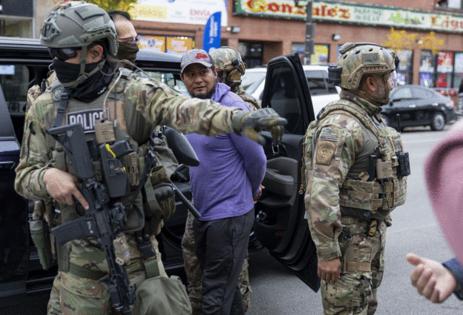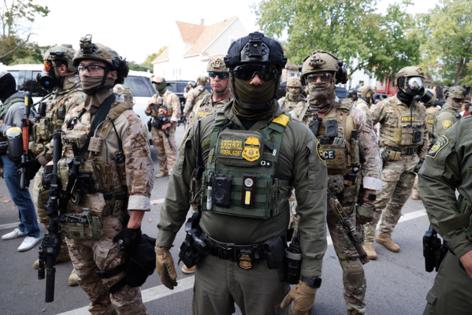Commentary: Chicago does not feel safe for anyone, no matter our status
Published in Op Eds
This spring, I couldn’t find my passport. Not quite sure what to do, I reported it as lost on the State Department website.
When you lose a passport, you apply as if you’ve never had one. Here’s the thing: I came to the United States with my family in the mid-1990s, and without a passport, the only proof that I’m a citizen is my naturalization certificate from 2003. Here’s the other thing: When you apply for a passport, you send in the original documents. Given the recent anti-immigrant rhetoric, I was shaking in my boots when I came to the post office for my passport appointment. The lady at the counter took one look at me — a middle-class white-presenting person — and offered to make me copies of the naturalization certificate in triplicate just so I have some proof.
Yes, I got my new passport. And yes, eventually, the original certificate came back in a separate envelope. Things worked out.
But for thousands — perhaps millions — of people, things aren’t working out. I walked out untouched because of who I am. For the immigrants who do not look or sound like me, the stakes aren’t just paperwork; they’re safety, dignity and belonging. This isn’t just about bureaucracy. It’s about who gets to feel secure in this country and who is made to feel like they don’t belong.
Right now, the city of Chicago does not feel safe for anyone, no matter their status. We’ve seen people being arrested without a warrant, tear gas released near schools, people knocked down and car windows smashed. Make no mistake. These tactics threaten all of us. When one person’s right to due process is taken away, all of us have lost that foundational right. Our Constitution ensures that our laws and legal system operate with equity and fairness and apply to everyone who is on U.S. soil. We are seeing the consequences of actions that sow fear in real time, and this trauma will be with our communities for years.
My family came to the United States with three truths firmly rooted in our minds: There’s no antisemitism in America; America is a country of immigrants and values our contributions; and everyone is subject to the rule and protection of our laws. 2025 is proving us wrong on all three counts, and we’re ever closer to resembling the Soviet Union.
But it doesn’t have to continue this way. I still have hope and a belief in the promise of America. I still believe that our common humanity will triumph.
My hope is fueled by the work of community organizations and individuals: Mutual aid networks that were vital to our communities’ survival during the height of the COVID-19 pandemic are reawakening. Whether it’s support for street vendors, immigrant-owned businesses or legal service organizations, people are stepping up. In my neighborhood and throughout the city, parents are forming “walking school buses” to make sure children from vulnerable families get home safely and that their parents do not expose themselves to being profiled by masked and armed federal agents.
Our community is familiar with collaborative advocacy. Like many Russian-speaking Jews, my family reaped the seeds sown by thousands of American Jews, who were also once migrants without a home. Their years of advocacy culminated in “Freedom Sunday,” the 250,000-strong march on the National Mall on Dec. 6, 1987. At that rally, former Soviet Union dissident or “refusenik” Natan Sharansky, who had recently been released from the gulag after nine years, said, “It is we, it is our struggle, which makes governments in the free world strong.”
It’s time we come back to the spirit of Sharansky’s words. As Jews, as Americans, as human beings, we act on the value of protecting our neighbors and welcome them without first stopping to ask for documents.
____
Jane Charney was born in Moscow and has called Chicago home for almost 20 years.
___
©2025 Chicago Tribune. Visit at chicagotribune.com. Distributed by Tribune Content Agency, LLC.



























































Comments